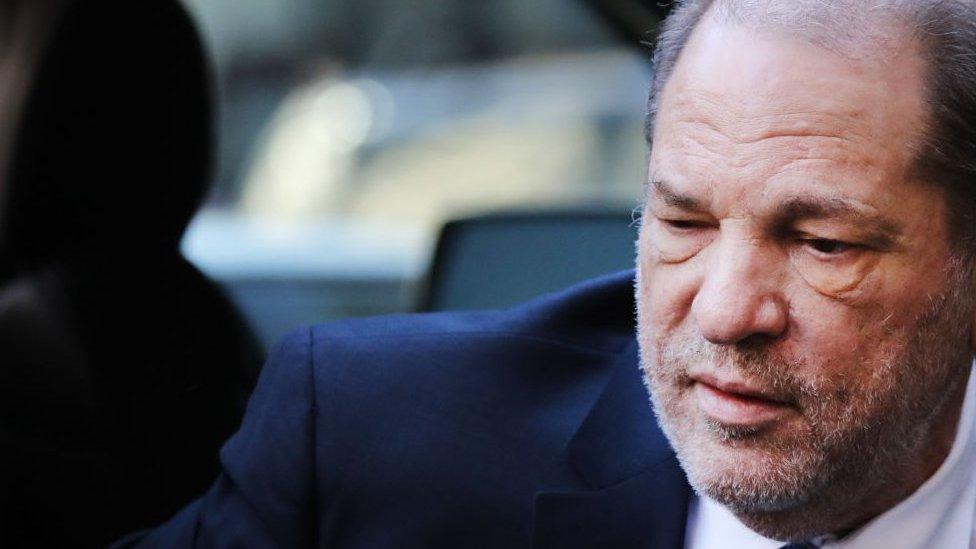Harvey Weinstein: Court agrees $17m payout for accusers
- Published

A US bankruptcy judge has agreed a $17m (£12.4m) payout to women who accused disgraced film producer Harvey Weinstein of sexual misconduct.
Weinstein, 68, was convicted last year and jailed for 23 years for rape and sexual assault.
The payout for his victims will come from the liquidation of the Weinstein Co, which filed for bankruptcy in 2018.
The judge overruled an objection from some accusers looking to pursue appeals outside of bankruptcy court.
Judge Mary Walrath said without the settlement, the plaintiffs would get "minimal, if any, recovery."
The Weinstein Co was set up as an independent film studio with the disgraced Hollywood mogul one of its co-founders.
The company collapsed in late 2017, following widespread claims of sexual misconduct against Weinstein, who was convicted of sexually assaulting a former production assistant and raping an actress.
The US judge said that 83% of sexual misconduct claimants in the bankruptcy "have expressed very loudly that they want closure through acceptance of this plan, that they do not seek to have to go through any further litigation in order to receive some recovery, some possible recompense... although it's clear that money will never give them that".
The $17m fund will be divided among more than 50 claimants, with the most serious allegations resulting in payouts of $500,000 or more.
The settlement was put to a vote of Weinstein's accusers, with 39 voting in favour and eight opposed.
Weinstein legacy: Life after #MeToo
They will have the option to forgo most of their payout under the plan if they want to continue pursuing their claims.
Insurers contributed $35m under the liquidation plan, which also provides $9.7m to the former officers and directors of the Weinstein Co, allowing them to pay a portion of their legal bills over the last several years.
The directors and officers, who include Weinstein's brother, Bob, also received releases that absolve them of any potential liability for enabling Weinstein's conduct.
The Weinstein Co sold its assets to Lantern Entertainment, which later became Spyglass Media Group, for $289m.